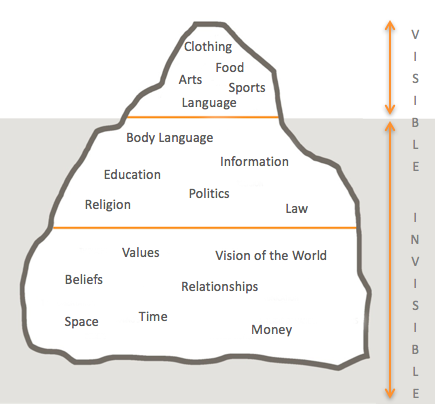How Does Culture Evolve During Times of Change?
I love this question. To answer it, I performed my usual research:
I started with Geert Hofstede, a Dutch social psychologist born in 1928 and best known for his pioneering research on cross-cultural groups and organizations. Hofstede’s most notable work has been in developing cultural dimensions theory, which he explored in his books Culture’s Consequences and Cultures and Organizations.
I then turned to Frederic Laloux and his book Reinventing Organizations. I love what he has to say on this topic: “Corporate cultures and context and purpose drive a culture that is called for in an organization. But beyond the unique culture of each company, there are several common traits linked to the developmental stage of an organization.”
So what are components of culture? There are the values, norms, and behaviors demonstrated by individuals inside an organization. Some are visible, however most are not, as the Iceberg Model demonstrates very well.

Looking closer at the invisible components, you can see that the statements below are important when facing change in an organization.
Trust: Freedom and accountability are two sides of the same coin. We relate to one another with positive intent.
Information and decision-making: All business information is open to all. Every one of us is able to handle difficult and sensitive news. We believe in the power of collective intelligence. Nobody is as smart as everybody.
Responsibility and accountability: We are each fully responsibility for the organization. If we sense that something needs to happen, we have a duty to address it. It’s not acceptable to limit our concern to the purview of our roles.
There are many more attributes, such as wholeness, a caring workplace, overcoming separation, learning, and purpose in our work places.
Now, Laloux states that it is impossible to change other people. We can only change ourselves. I agree!
It is essential that we take ownership of our thoughts, beliefs, words, and actions! That’s a biggie, as it’s certainly courageous to take ownership and reflect on things that trigger us.
If each individual fully embraces those aspects, then no matter what change is happening, we will collectively evolve within our corporate culture and, quite likely, without even noticing it.
Now, let me take a very different route. I had the good fortune to spend my Easter holiday with a close friend of mine, Anu Cain, whom I asked this very question (re: evolving culture) while we enjoyed a long lunch with fantastic Italian wine in southern Switzerland.
Anu’s mother was born in the UK, while his father is half Trinidadian, half Scottish. Anu, born in the UK, moved to Tobago with his family when he was 6 months old. There, he perceived life as unstructured, with people being of free spirit, sensuous and body oriented. Borders or territory were defined by natural elements and seasons, such as the jungle, the ocean, and animals.
After turning 8, they moved back to the UK, where he was suddenly confronted with the western world, which he experienced as cold, mind oriented, rule driven, and political, with territorial boundaries such as garden fences and property lines. These were two very different cultures, with plenty of room for confusion. As an adult, Anu has spent almost 30 years living around the world, in India, Japan, Taiwan, Australia, the US, and Europe, and enjoying the learning of quickly adapting to each. He has gained a profound understanding that culture is alive – it’s not a fixed thing, but fluid. What is acceptable in Japan can be quite opposite in the UK. As a traveler around the globe, one must be adaptable.
I did ask him for his insights about his agility in always respecting and adapting to the cultural environment. He said no matter where you are, there is no universal right or wrong. One simply needs to see the conditions of the environment, be sensitive to the social norms, and always focus on and respect the human values.
That’s also what we need to be mindful of during times of change. People react to change and there is an evolution of values, etc.
The older a culture, the more embedded cultural norms can be, which makes transcending those norms quite a challenge. They may be out of date, as the culture typically grew out of a need for security and safety.
The focus, however, should be on respecting values that are valid today. As we are more and more becoming global citizens, cultures are meeting, merging, and overlapping.
I did enjoy this conversation, as I could see the similarity with the evolvement of corporations today.
My last question to him: What one piece of advice would you give to a team while facing times of change? “Adaptability and being human is the key, and will be the underlying connection beyond culture. The team members’ understanding of their own humanness will always be the bridge. For leaders to remain in his/her humanness in their professional role will always be the bridge.In a dispute about differences one should not only focus on facts, but also truly seeing the other person.”
(FYI, Anu lives with his wife and 2 children outside of Munich, Germany, and teaches body awareness and re-balance. www.silence-of-touch.com)
To summarize, we have two very different perspectives which both come to the same conclusion: During times of change, leaders should:
- Be self-aware of the emotional journey and evolving dynamics
- Have compassion for themselves and others, and our evolutionary states
- Re-ground people around purpose and core values
- Listen and take time to understand through human connection
Trust as a Foundation of 21st Century Organizations

One of the most frequent questions I get regarding ourRead more…




Comments are closed.